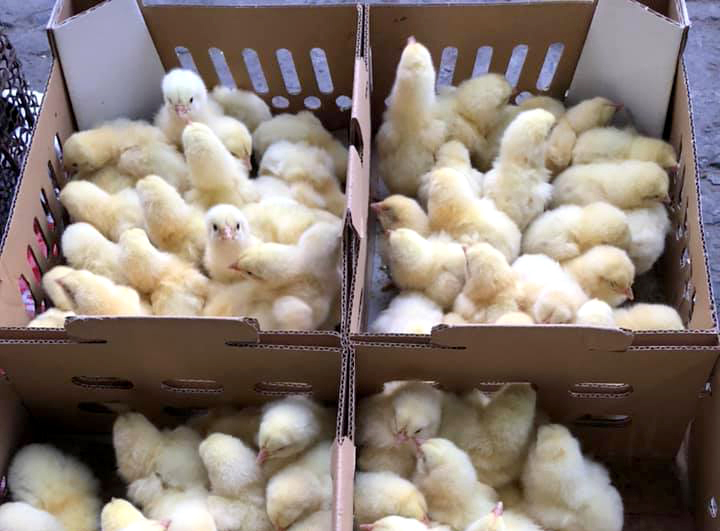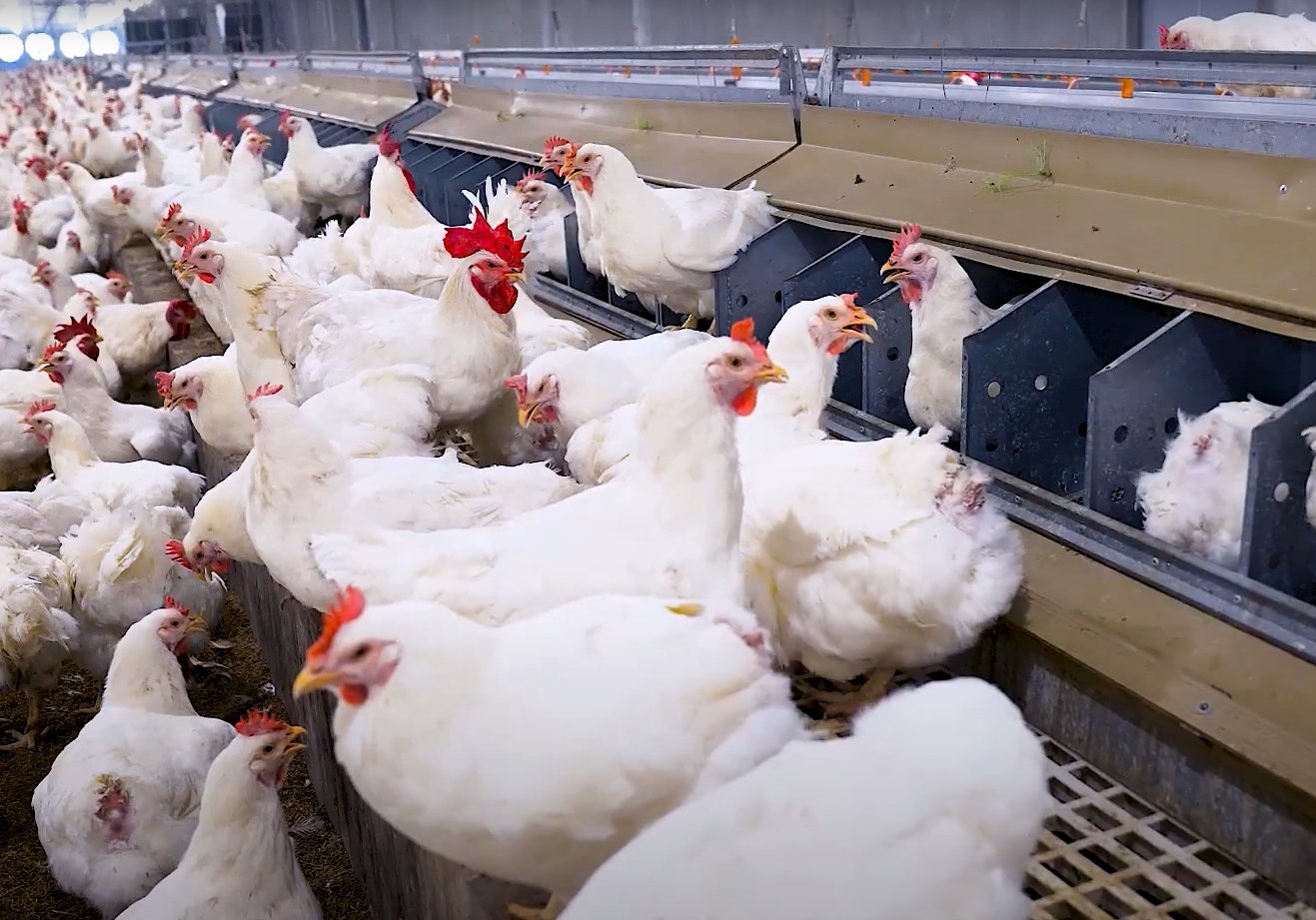October 9, 2025 | 15:33 GMT +7
October 9, 2025 | 15:33 GMT +7
Hotline: 0913.378.918
October 9, 2025 | 15:33 GMT +7
Hotline: 0913.378.918

Breeding chickens owned by Japfa Comfeed Vietnam Company. Photo: Son Trang.
Japfa Comfeed Vietnam (Japfa Vietnam) is currently one of the businesses with the largest flock of poultry in Vietnam.
Mr. Tran Kim Tan, Production Manager of the Southern Poultry Division in Japfa Vietnam, reported that the company's Southern Branch currently has 450,000 broodstock chickens. Japfa Vietnam produces 50 million chickens for meat production (including 25 million colored chickens and 25 million white feathered chickens), and 7 million chickens for egg production.
Japfa Vietnam has actively promoted the establishment of disease-free facilities over the years to form a Feed-Farm-Food chain. According to this strategy, the company primarily focuses on disease prevention. Accordingly, the Japfa Vietnam consistently adheres to the recommendations made by the Ministry of Agriculture and Rural Development, local Departments and Sub-Departments of Animal Health, thereby developing disease prevention procedures for chicken flocks in breeding facilities.
Thanks to the support from the local governments and animal health sector, Japfa Vietnam has actively supported farmers and farms in the registration and establishment disease-free breeding facilities. Furthermore, the company promotes cooperation to ensure that livestock production processes and disease prevention activites are in accordance with regulations on disease safety.
Japfa Vietnam is a subsidiary of Japfa Group, an Indonesia-based company with over 50 years of operation in the poultry industry. Accordingly, Indonesian specialists frequently supported Japfa Vietnam, Vietnamese farming households and linked farms with new techniques and advanced methods to raise disease-free and food-safe poultry in a sustainable manner.
With the goal of building a sustainable Feed-Farm-Food chain, Japfa Vietnam is constantly providing associated farmers with assistance in constructing disease-free facilities on their farms. In addition, the company has accelerated the construction of infrastructure on farms, with an emphasis on the waste treatment system, to ensure safe poultry production and prevent the spread of diseases.
Moreover, Japfa Vietnam focuses on the equipping employees and breeders with knowledge and skills in poultry management and disease prevention.
The company promotes coordination and connection with local governments as well as other livestock companies to exchange information regarding disease prevention in production and in the market. In addition, Japfa Vietnam has developed a linkage between farms and raw material suppliers, thereby creating a stable and sustainable connection in the Feed-Farm-Food chain.

Livestock businesses have invested extensively in constructing disease-free facilities. Photo: Son Trang.
Mr. Nguyen Kim Dung, Head of the Epidemiology Division under the Region 6's Sub-Department of Animal Health, believes that in addition to the local governments, livestock businesses, especially those aiming to export poultry products, are indispensable in the establishment of disease-free zones for poultry.
According to Mr. Tran Kim Tan, livestock businesses must develop special and transparent policies in order to successfully establish disease-free facilities and zones. Additionally, detailed guidelines and regulations on the operation of disease-free systems and facilities must also be provided.
The majority of businesses requires capital support because disease-free breeding facilities require significant investment in infrastructure, equipment, and modern technologies in livestock. Many businesses have voiced their concerns regarding land fund as a major factor in establishing regulated and disease-free breeding zones.
Livestock businesses have proposed the Ministry of Agriculture and Rural Development and local governments to actively share information regarding the market, diseases, etc., so that businesses can adjust timely to increase the efficiency of production as well as disease prevention.
Translated by Nguyen Hai Long

(VAN) Cassava mosaic disease is wreaking havoc on cassava crops, prompting scientists to develop resistant varieties using molecular marker technology - a breakthrough that could pave the way for the sustainable development of the industry.

(VAN) After detecting an H5N1 avian influenza outbreak, Khanh Hoa Department of Agriculture and Environment promptly implemented disease prevention measures.

(VAN) The Ministry of Agriculture and Environment has requested Nghe An to expedite the disbursement of ERPA funds, avoid backlogs, ensure the rights of forest owners, and promote sustainable forest development.

(VAN) Operating a European-standard refrigeration system at full force, Thanh Bao Han poultry slaughterhouse ensures tens of thousands of safe meals every day.

(VAN) Large timber is the foundation for elevating the wood processing and export industry, and community-based agricultural extension acts as the forestry sector's 'extended arm'.

(VAN) An Giang is capitalizing on its maritime advantages: high-tech aquaculture, marine tourism, and renewable energy, which are becoming pillars of the marine economic development.

(VAN) From household groups to cooperatives practicing sustainable forest management, local communities are contributing to the expansion of forest certification, helping Vietnam's wood industry overcome international market barriers.